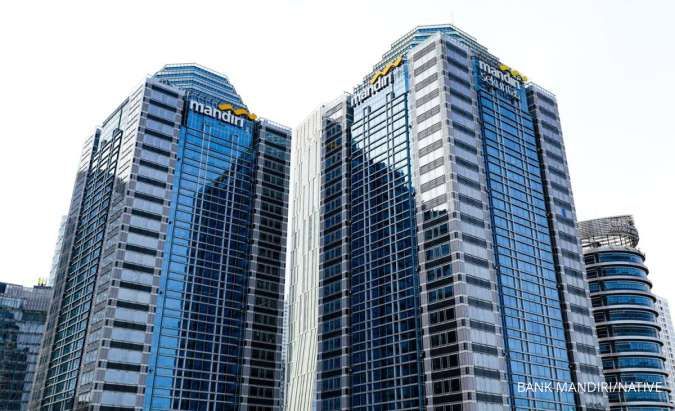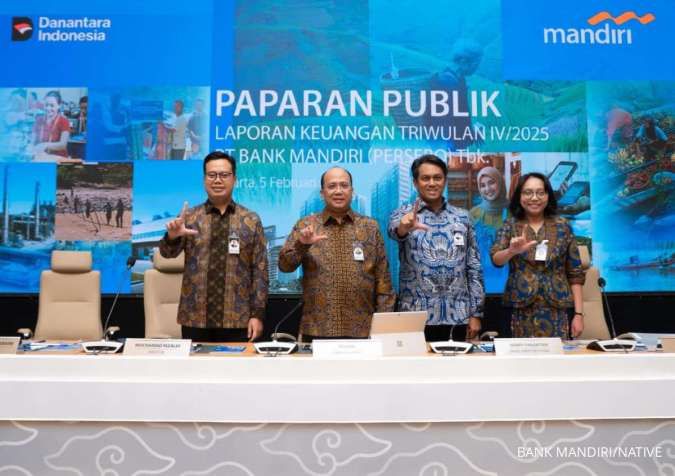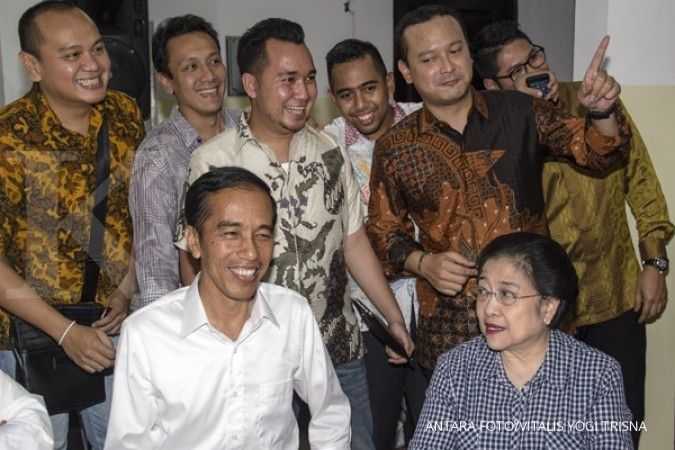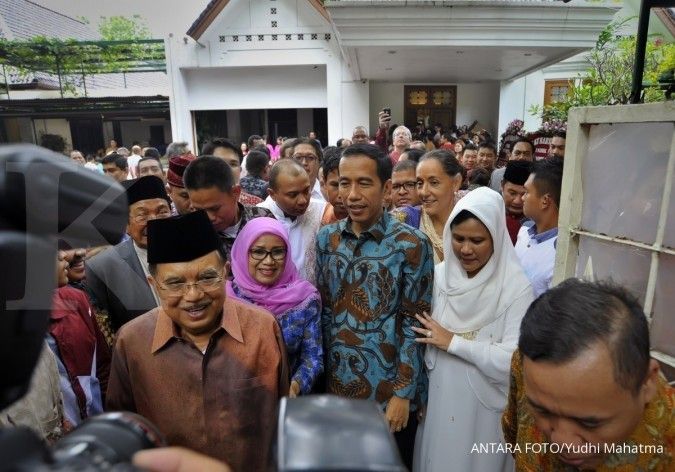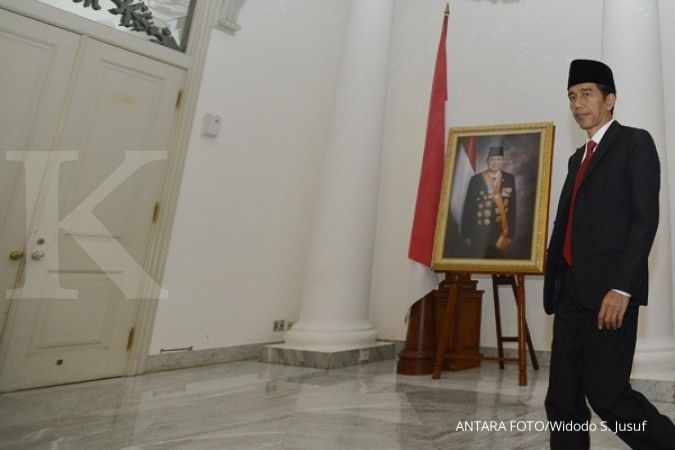JAKARTA. President-elect Joko “Jokowi” Widodo’s administration will likely set up an autonomous taxation office with greater authority and a more efficient bureaucracy to boost state income. Unlike the existing taxation directorate general, which is part of the Finance Ministry, the new taxation office will most likely be separate from the ministry. Sri Adiningsih, an economic adviser to Jokowi, said the establishment of such a taxation agency was one of several programs that Jokowi had introduced during the presidential campaign. “It will be better for the new tax office to be a separate entity outside the Finance Ministry,” she told The Jakarta Post in a text message on Sunday. Reports on the issue grabbed public attention after taxation director general Fuad Rahmany revealed on Friday the government’s plan to set up a special taxation office. Among the powers to be granted the special body were the abilities to recruit its own employees and to dismiss underperforming ones, to give incentives and to manage its own budget, he added. However, Fuad said the special body would remain under the Finance Ministry. Meantime, Deputy Finance Minister Bambang Brodjonegoro confirmed the plan on Sunday, saying that the government was preparing a complete report that included the phases of the body’s establishment. Tax reforms, including institutional restructuring, are considered crucial to Indonesia, as in the past 12 years the government could only meet its tax revenue collection targets twice — in 2004 and 2008. Due to a gloomy outlook for exports and a continuing economic slowdown in Southeast Asia’s biggest economy, which could potentially erode corporate earnings, the non-oil and gas tax income target for this year has been cut by Rp 45.6 trillion (US$3.87 billion) to Rp 988.5 trillion. Sluggish collection of tax revenue, coupled with ballooning subsidy spending, has pushed the government to slash ministerial expenditures by Rp 43 trillion in the revised 2014 state budget. As of early July non-oil and gas tax proceeds totaled Rp 427.95 trillion, or a mere 43.2 percent of the full-year target. In addition, Institute for Development of Economics and Finance (INDEF) economist Ahmad Erani Yustika said the establishment of a specific body to manage tax collection would help the government achieve its annual tax collection targets. “The government should ensure the body has a certain level of authority to enable it to play its role optimally,” he said. Erani agreed that the body should be placed under the Finance Ministry, which would constantly push it to meet its revenue objectives. Indonesian Institute of Sciences (LIPI) economist Latif Adam said the establishment of the body would accommodate the need to increase tax income sustainably in a move that would spur economic growth and allow a more efficient tax service. However, Latif said the new institution should be made autonomous and be separate from the Finance Ministry to enable it to be more transparent and accountable. “The body must communicate directly with the House of Representatives about its tax revenue targets, as well as their realization,” he said. Ah Maftuchan, a public policy expert at a Jakarta-based think tank, the Center for Welfare Studies (Perkumpulan Prakarsa), shared a similar view with Latif, saying the new tax agency should be entirely independent from the Finance Ministry so that it would gain stronger authority by operating under its own discretion, which would be vital for overall tax policy reforms. “The agency needs to be under the president’s control so that it can settle disputes and attain higher tax collection,” said Maftuchan, whose organization joined others in pushing the new administration to establish the separate new tax body. Instead of recruiting more tax collectors, whose numbers are already sufficient in terms of their ratio to the country’s population, tax collection should be intensified so as to achieve a breakthrough in meeting revenue targets, he added. (gda)
Jokowi plans tax overhaul
JAKARTA. President-elect Joko “Jokowi” Widodo’s administration will likely set up an autonomous taxation office with greater authority and a more efficient bureaucracy to boost state income. Unlike the existing taxation directorate general, which is part of the Finance Ministry, the new taxation office will most likely be separate from the ministry. Sri Adiningsih, an economic adviser to Jokowi, said the establishment of such a taxation agency was one of several programs that Jokowi had introduced during the presidential campaign. “It will be better for the new tax office to be a separate entity outside the Finance Ministry,” she told The Jakarta Post in a text message on Sunday. Reports on the issue grabbed public attention after taxation director general Fuad Rahmany revealed on Friday the government’s plan to set up a special taxation office. Among the powers to be granted the special body were the abilities to recruit its own employees and to dismiss underperforming ones, to give incentives and to manage its own budget, he added. However, Fuad said the special body would remain under the Finance Ministry. Meantime, Deputy Finance Minister Bambang Brodjonegoro confirmed the plan on Sunday, saying that the government was preparing a complete report that included the phases of the body’s establishment. Tax reforms, including institutional restructuring, are considered crucial to Indonesia, as in the past 12 years the government could only meet its tax revenue collection targets twice — in 2004 and 2008. Due to a gloomy outlook for exports and a continuing economic slowdown in Southeast Asia’s biggest economy, which could potentially erode corporate earnings, the non-oil and gas tax income target for this year has been cut by Rp 45.6 trillion (US$3.87 billion) to Rp 988.5 trillion. Sluggish collection of tax revenue, coupled with ballooning subsidy spending, has pushed the government to slash ministerial expenditures by Rp 43 trillion in the revised 2014 state budget. As of early July non-oil and gas tax proceeds totaled Rp 427.95 trillion, or a mere 43.2 percent of the full-year target. In addition, Institute for Development of Economics and Finance (INDEF) economist Ahmad Erani Yustika said the establishment of a specific body to manage tax collection would help the government achieve its annual tax collection targets. “The government should ensure the body has a certain level of authority to enable it to play its role optimally,” he said. Erani agreed that the body should be placed under the Finance Ministry, which would constantly push it to meet its revenue objectives. Indonesian Institute of Sciences (LIPI) economist Latif Adam said the establishment of the body would accommodate the need to increase tax income sustainably in a move that would spur economic growth and allow a more efficient tax service. However, Latif said the new institution should be made autonomous and be separate from the Finance Ministry to enable it to be more transparent and accountable. “The body must communicate directly with the House of Representatives about its tax revenue targets, as well as their realization,” he said. Ah Maftuchan, a public policy expert at a Jakarta-based think tank, the Center for Welfare Studies (Perkumpulan Prakarsa), shared a similar view with Latif, saying the new tax agency should be entirely independent from the Finance Ministry so that it would gain stronger authority by operating under its own discretion, which would be vital for overall tax policy reforms. “The agency needs to be under the president’s control so that it can settle disputes and attain higher tax collection,” said Maftuchan, whose organization joined others in pushing the new administration to establish the separate new tax body. Instead of recruiting more tax collectors, whose numbers are already sufficient in terms of their ratio to the country’s population, tax collection should be intensified so as to achieve a breakthrough in meeting revenue targets, he added. (gda)
